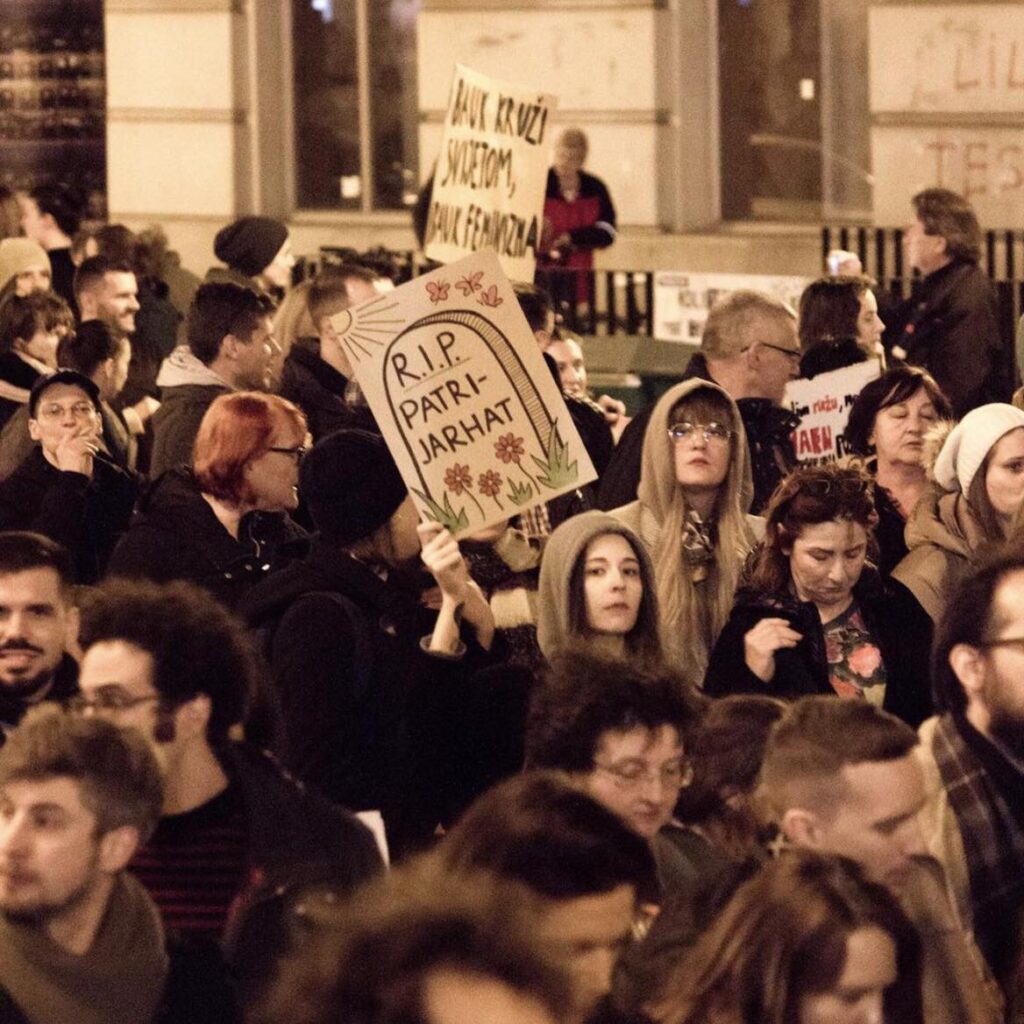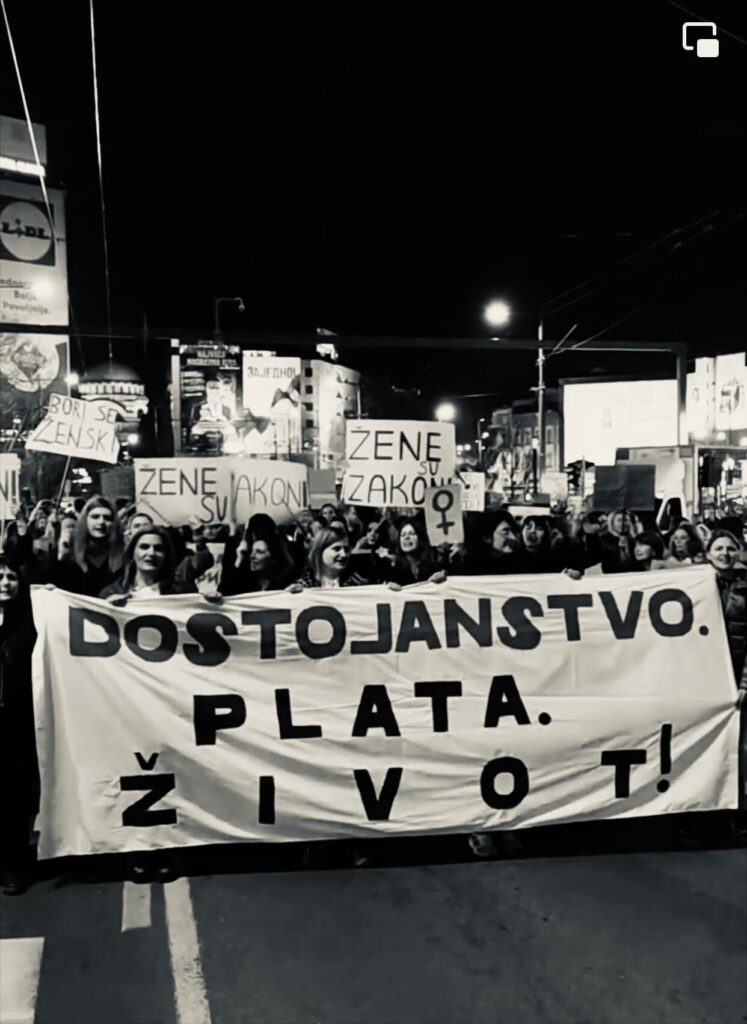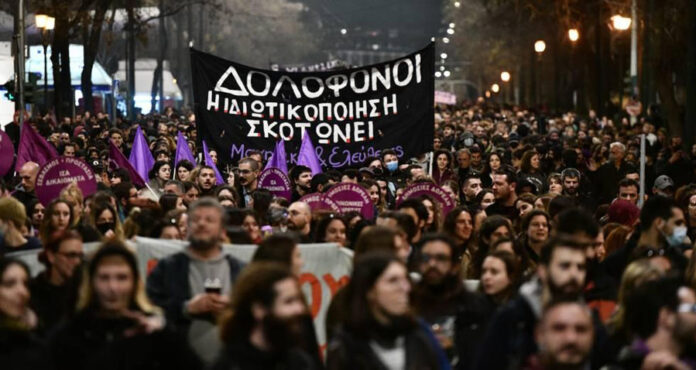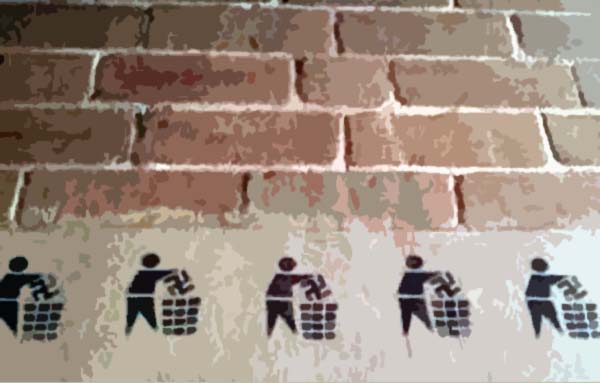A number of women comrades of Internationalist Standpoint contributed to this article
The feminist movement has been growing worldwide over the last few years; it is trying to “reclaim” March 8th from the bourgeois forces that try to turn it into a “holiday”, where men give roses to women and relieve them of household chores for a day.
So, on March 8 this year, millions of people around the world tried to give International Women’s Day the characteristics it deserves; with militant demonstrations and by advancing the struggle against sexism, discrimination and inequality.
In the report below we highlight only a few examples of this struggle, which of course takes different forms in different countries.
Where protesting is criminalised
For the last 5 years, feminist groups have been organising mobilisations for International Women’s Day in Pakistan, knowing in advance that they would be attacked by the police.
In Lahore, despite the fact that the authorities tried to ban the rallies and refused to provide security, around 2,000 women participated in the demos.March 8 rallies are often the target of attacks and “counter-marches” organised by fanatical religious groups who call them “hijab marches”.
Similarly, in Islamabad, despite the fact that the police blocked access to the rally site with containers and attempted to cordon off the surrounding areas, they could not stop the protest. Dozens arrived at the demonstration singing, clapping and chanting: “Women have woken up!”
One of the measures taken as part of the prevention of spreading the Covid -19 virus was the banning of protests. In Hong Kong, lockdowns are now over but the police seem to be using this ban as a threat to stop the protest organised by Hong Kong Women Workers’ Association (HKWWA). At the same time, women’s organisations in China were calling for the government to release the 4 women that were jailed during the ‘blank paper’ protests of November and December, to drop the charges against all other individuals in China (many of whom were women) for freely expressing themselves, and to end its suppression of speech about the Covid-19 pandemic.
“Our resistance is not made of sand, it will not collapse like your buildings”
This year, International Women’s Day in Turkey was celebrated in a bitter way due to the massive earthquakes that affected 11 provinces and killed around 50,000 people. In Hatay, one of the provinces hit hardest by the earthquake, women took to the streets amidst the rubble of their homes, streets and lives and demonstrated with the slogan “we will rebuild life”. Daytime demonstrations and night marches were also organized in major cities such as Ankara, Istanbul, Adana, Izmir, Bursa.

With the upcoming Presidential and general elections scheduled to be held on May 14, the March 8 protests were combined with demands relating to the earthquake as well. The rallies carried banners such as “those who create the wreckage will be the wreckage” and “the pillar of the house is the column, (not men)”.
In Ankara, the protest was larger than in previous years and was occasionally met with tensions from the police. In Istanbul, the police did not allow entry to the gathering areas for a long time. They physically attacked and detained those trying to attend. Despite the repression, the 21st Night March in Istanbul still managed to gather at a nearby spot. Together, protest attendees said to the AKP government (and hopefully for the last time) “Our resistance is not made of sand, it will not collapse like your buildings”.
The demand for punishment of those responsible for the collapse of the buildings in Turkey was the slogan of the protest in northern Cyprus on March 8th as well. Around 40 children from Cyprus lost their lives in Turkey, and the mourning period only recently ended. The anger for their loss, coupled with the continuous conservatism and decline of the living standards of the people in northern Cyprus due to the neoliberal policies imposed by Turkey was reflected in the march.
Fight against the pay gap
In Indonesia, protesters took to the streets to demand a higher minimum wage for women, while highlighting other issues such as physical and psychological violence against women.
Similarly in the Philippines, hundreds of protesters from women’s groups gathered in Manila demanding higher wages and decent jobs.
“We are seeing the widest gender pay gap,”protest leader Joms Salvador said. “We are seeing an unprecedented increase in the number of women workers who are in informal work without any protection.”
In Japan, a country that ranked 116 out of 146 countries on gender parity in the World Economic Forum’s global report last year, women demonstrated for the simple demand of having the right to keep their surname after they get married. Even after having to go to work, the majority (65 percent) of women in Japan put a low priority on time for themselves in order to fulfill family responsibilities, compared to 42 percent of men, while women do 80 percent of the cooking, compared to 8 percent for men, and other household chores had a similar weighting. The only job men did more than women was taking out the rubbish, at 49 percent to 43 percent.

Mobilizations around the globe
Demonstrations took place in many countries and cities across Europe, although in many cases they lacked the momentum of previous years. Perhaps the most notable example is Spain, which was the first country in Europe to organise a feminist strike for March 8th in 2018. In subsequent years, as well as this year, the March 8 marches were massive in Spain, but there was no strike call to complement them and give them a wider dynamic. Moreover, in many cities the movement was divided over the new laws proposed by the government about sexual freedom, sexual violence and gender self determination.
Again, the groundwork has been laid and the conversation about the need for a feminist strike has opened up globally.
March 8th in Romania is usually celebrated with flowers; men offer flowers to the women in their lives; businesses offer flowers to their female customers. But beyond this apolitical celebration, two political protests took place in the two main cities: Bucharest and Cluj, both of them focusing on defending access to abortion services, which is under threat because of privatisation and religious interference.
The protests were organised by a coalition of feminist NGOs, under the slogans “Our uterus is not for your profit” and “capitalism kills”. People chanted demands for access to abortion services, to birth control and sex education in school to the tune of the famous resistance song, Bella Ciao. The demands were widened to include access to preventative healthcare for women, such as free HPV vaccines and tests and other sexual health prevention, as well as non-discrimination towards women from vulnerable backgrounds and ethnic and sexual minorities.
Violence against women, inequalities at work, femicide and the right to abortion were among the central issues highlighted in this year’s mobilisations, along with the oppression suffered by women in Iran and Afghanistan.
In Iran itself, it’s been 6 months since the murder of Mahsa (Jina) Amini, the 22-year-old Kurdish woman, who died as a result of the brutal assaults inflicted by the Iranian regime’s so-called ‘morality police’. It was the defiance and protests of women, particularly young women, with their brave and selfless struggles that gave this uprising such an explosive and radical character. Iran’s fearless women, who took to the streets in unprecedented numbers, motivated millions of people from all classes and layers throughout the country to confront the blood-soaked capitalist dictatorship.
In this uprising, women were the first to protest and had a central part in the street and university demonstrations. Tens of thousands of schoolgirls were also widely active inside their schools and in their neighbourhoods. They even chased regime officials out of their schools! It started the most significant and sustained protest movements in the history of the current regime. There was bold and heroic action taken by Iran’s youth, national minorities and many other layers. Workers in many industries went on strike – including the oil, gas and petrochemical sector based in Khuzestan.
Today the regime is coming back to take revenge, adopting a new tactic –copied from the Taliban government of Afghanistan– as its counter-attack against schoolgirls who have been protesting in their tens of thousands against discrimination, inequality and the lack of basic rights. The Iranian regime has now poisoned hundreds of schoolgirls in Tehran, Karaj, Qom, Rasht, Esfahan, Orumiyeh, Arak, Borujerd, Zanjan, Hamadan, Lahijan, Ilam, Safadasht, Shahryar and other cities.
On March 7, a nationwide demonstration was called to protest against the Iranian regime’s poisoning of hundreds of schoolgirls, which took place in many cities. Many parents and teachers took part in these protests against this chemical terrorism.
Our struggle to change the world so that there are no oppressors and no oppressed in any corner of the globe is more urgent than ever.

The way forward
This year’s IWD found working women and men in a contradictory situation. On the one hand, we had a significant defeat with the overturning of Roe vs. Wade in the US, which is having repercussions in many countries. Attempts to limit women’s rights and outright attacks are on the agenda in the majority of countries. On the other hand, we have the extremely dynamic uprising in Iran launched by young women against the oppressive system which has been widely embraced by working people and the poorest strata in the country. The global expression of solidarity and inspiration has shown that the movement is still up for a fight.
The experience of numerous feminist movements is clear: in order to win our demands, we need mass and well-organised struggles. Just to sustain our rights, we need to constantly be on our toes, always ready to defend them. To get rid of structural inequalities once and for all, we need to get rid of the capitalist system that generates them.
This year, the above conclusions have become even more evident in Greece, where March 8 was in fact turned into a protest for women’s rights, as well as a protest against the government and the system responsible for the criminal train crash at Tempi (read more here).
These struggles have a common enemy, the system of profit and exploitation. We need to organise the fight against it!













